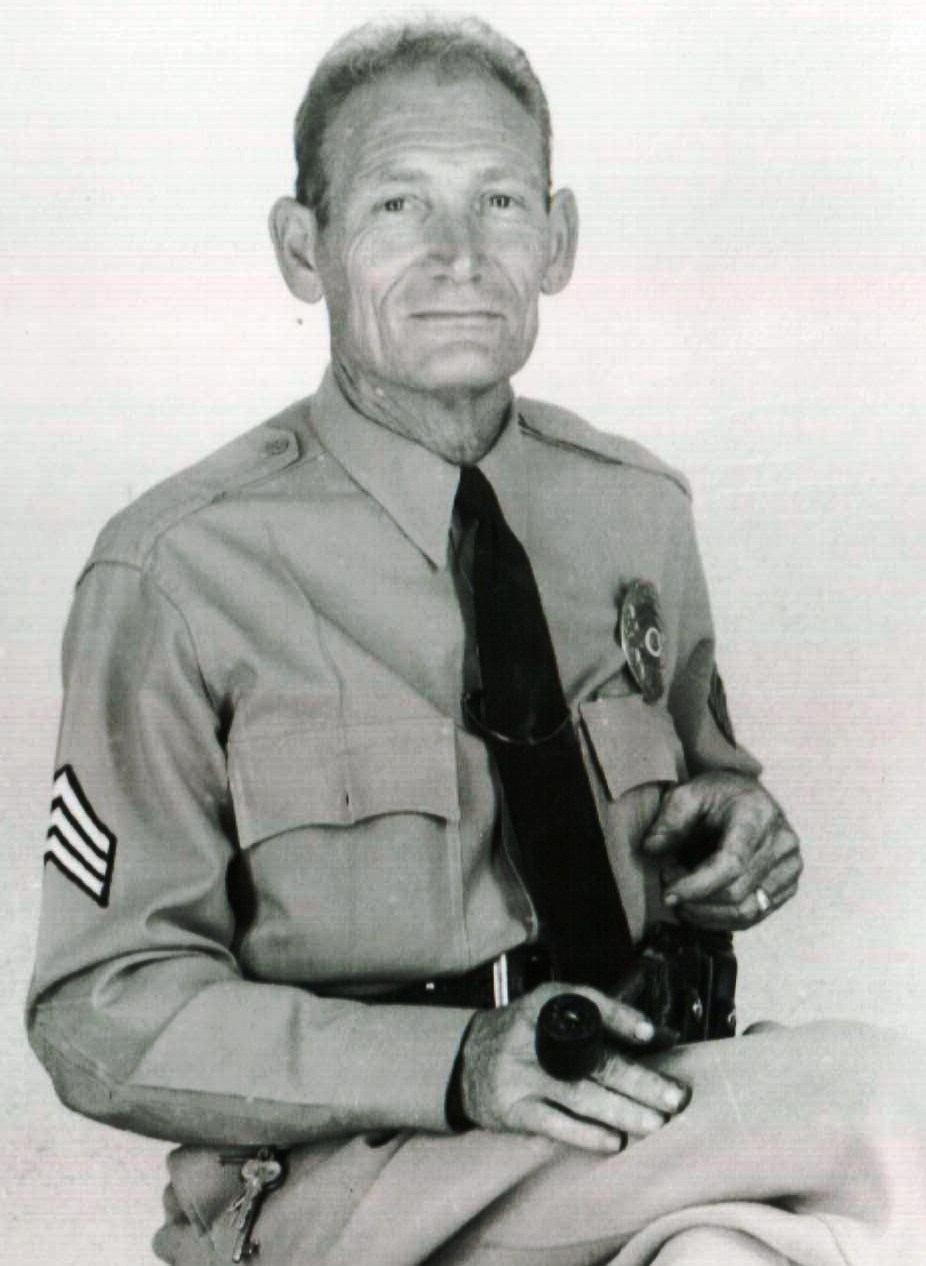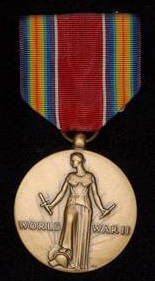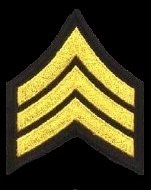

THE THIN BLUE LINE
SERGEANT CARTER F. TRUITT
BADGE 57 & 239
SDPD 11/02/1938 - 1970
10/19/1906 - 03/28/2000

San Diego Union-Tribune, The (CA) - April 14, 2000
Early in World War II, Carter Freeman Truitt put his law enforcement career on hold to serve his country as an Army artillery officer.
It didn't take the Army long, though, to recognize the value of his three years in the San Diego Police Department. His assignment: organize a military police unit to be headquartered at the downtown city jail.
While his buddies from the 57th Coast Artillery Battalion were shipped to the Philippines, Mr. Truitt rose to captain and director of Army intelligence in an area encompassing Southern California, Arizona and New Mexico.
Mr. Truitt died March 28 at his home in Del Cerro, where he had lived for 40 years. He was 93.
The cause of death was prostate cancer, said his son, Terry.
Before being assigned to Army intelligence, Mr. Truitt served as a provost marshal, supervising military police throughout San Diego County. It was an assignment he relished, his son said. But, as members of his former artillery unit went overseas, part of his heart went with them.
"A lot of the guys he met at Camp Callen in the Reserve summer camp in 1941 ended up on Corregidor and in the Bataan death march, and not many came back," Terry Truitt said.
"Once Dad was in Army intelligence, working closely with Gen. Ralph H. Van Deman, he couldn't be sent overseas."
Meanwhile, in April and May 1942, American troops were forced to surrender to Japanese invaders on the Bataan Peninsula and the island of Corregidor in the Philippines. Thousands of soldiers later died in the 60-mile Bataan Death March.
In the winter of 1945, Mr. Truitt supervised the closing of Camp Callen, a sprawling anti-aircraft training center on Torrey Pines Mesa where he had been stationed. Eventually, Torrey Pines Golf Course and the University of California San Diego would occupy the land.
Mr. Truitt, who had been commissioned as a lieutenant in the Army Reserve in 1935, left active duty in the late 1940s as a major. He resumed his law-enforcement career, rising to detective and, in 1948, to patrol sergeant. He retired in 1970.
Before joining the Police Department in November 1938, Mr. Truitt founded a small water company and drove a San Diego streetcar.
It was while driving a streetcar that he placed his name on a list of candidates for an opening with the Police Department, his son said.
One day, while riding tandem with a fellow police officer on a motorcycle in the Rolando area, Mr. Truitt suffered a broken ankle. After recovering, he was reassigned from motorcycles to the patrol division, where he remained until being called to active duty in the Army.
As a younger man, Mr. Truitt delivered drinking water to homes and businesses in San Diego and developed a ceramic water cooler on which he obtained a patent. During the Depression, he sold his modest company to Silver Springs, which by the mid-1980s became the third-largest vendor of bottled water in Southern California.
Mr. Truitt was born in Hannibal, Mo., and moved with his family to San Diego as an infant. He attended San Diego High School for three years, then earned a diploma from Long Beach Polytechnic High after his family moved north.
The son of a skilled carpenter, Mr. Truitt learned to work with his hands at an early age. In 1960, with the help of police colleagues, he built a home in Del Cerro, a fledgling suburb emerging from the brush-covered hills north of San Diego State University.
In retirement, Mr. Truitt took care of his wife, Audrey, after she developed Alzheimer's disease, and he managed property he owned in San Diego.
He was a longtime member of Silver Gate Masonic Lodge in North Park.
Survivors include his wife; a daughter, Beverly Carr of Absecon, N.J.; a son, Terry, of Escondido; four grandchildren; and five great-grandchildren.
No services were scheduled. Burial was at Fort Rosecrans National Cemetery.


Basic information is provided as a courtesy and is obtained from a variety of sources including public data, museum files and or other mediums. While the San Diego Police Historical Association strives for accuracy, there can be issues beyond our control which renders us unable to attest to the veracity of what is presented. More specific information may be available if research is conducted. Research is done at a cost of $50 per hour with no assurances of the outcome. For additional info please contact us.
Father of Officer Terry Truitt